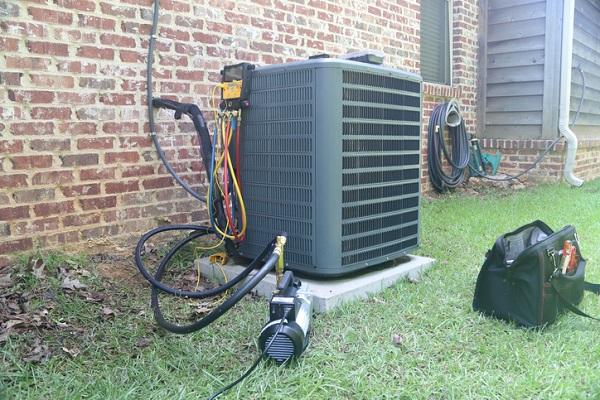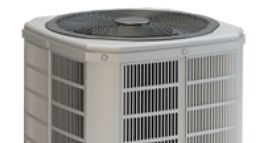On January 1, 2020, the Environmental Protection Agency’s (EPA) ban on Freon® went into full effect. This ban forbids the production or import of Freon (also called R-22) throughout the United States. Since many air conditioning units manufactured before 2010 use Freon, your Buyers and Sellers might wonder what the ban means for them. Here are some common questions you can help your Buyers and Sellers answer about the Freon ban.
Does the Freon ban require homeowners to have new air conditioning installations?
No, the ban does not require homeowners to have new air conditioning installations. If a homeowner’s current air conditioner uses Freon, they can still use that air conditioner. In fact, they can still have an air conditioning contractor recharge it with Freon.
However, finding an air conditioning contractor who works with Freon will be much more challenging. While the ban does not force HVAC technicians to stop using Freon altogether, it does make it much harder and more expensive to source. If they can find an existing supply, they can use it to recharge air conditioners. But once it’s gone, it’s gone for good. And some air conditioning contractors refuse to carry Freon anymore, either due to cost or because of negative environmental impacts.
If homeowners have Freon, can they get still get an air conditioning repair?
Yes. Homeowners who have air conditioners that use Freon can still get air conditioning repairs. The problem they might face is related to the refrigerant itself, rather than the entire unit.
For example, if a homeowner’s air conditioner fan burns out from routine wear, the fact that it uses Freon shouldn’t affect the air conditioning repair process. But if that air conditioner develops a refrigerant leak and uses Freon, the air conditioning repair process may get a little more complex. If the air conditioning contractor carries Freon, they may be able to fix it as usual. But they may also recommend either replacing the unit or retrofitting it.
Replacing the air conditioner is fairly straightforward. It can also be extremely expensive. With a home warranty from 2-10 Home Buyers Warranty (2-10 HBW), it’s possible to get an air conditioner replaced for a much smaller Service Fee. This can be invaluable coverage for Sellers, since a broken down air conditioner can hurt their chances of a sale and cost a fortune to replace out of pocket. But a home warranty would only cover a replacement if repairs weren’t possible and the problem was caused by routine wear and tear.
The other option a homeowner has is retrofitting their air conditioner to accept alternative refrigerants. This is a much easier and less expensive option than replacing the entire system. For more information about the process of retrofitting an air conditioner, you can read our guide to retrofitting.
Can homeowners recharge with a similar refrigerant instead of getting a retrofit?
No they can’t. Knowingly mixing refrigerants is illegal. When someone mixes refrigerants, it’s impossible to recycle and properly dispose of the mixed refrigerants. The goal of the Freon ban in air conditioners is to better protect the ozone layer (Freon damages the ozone layer). Mixing refrigerants defeats the purpose and can get homeowners in trouble, too.
Additionally, mixing refrigerants can damage the air conditioner. Alternative refrigerants require different parts to move through the air conditioner properly. But a quality air conditioning contractor can install these parts in a matter of days, not weeks or months.
Do alternative refrigerants work as well as Freon?
Yes! There are many alternative refrigerants to choose from, and they work just as well as Freon. These alternative refrigerants do the same thing Freon does but without the detrimental effects of Freon. Though the government ban will make Freon more difficult and expensive to source, alternative refrigerants are a great solution.
For example, a common alternative refrigerant is MO99. MO99 uses the same kind of oil as Freon, which makes retrofitting for MO99 easy for air conditioning contractors. Another alternative refrigerant, R-410A (Puron), is common in many air conditioners manufactured after 2013. You can get a full rundown of common alternative refrigerants using our guide.
Does a home warranty help address the Freon ban?
A 2-10 HBW home warranty can help address the Freon ban in several ways. Our Buyer and Seller coverage both come with unlimited refrigerant. No matter how many refills a Buyer or Seller needs under 2-10 HBW coverage, they can get it for the simple cost of a Service Fee. This can save Buyers and Sellers tons of time and money if their air conditioner leaks refrigerant.
(Please note that Sellers who want A/C and heat pump coverage as a part of their Seller coverage need to pay a one-time $50 fee. Also note that Seller coverage is $60 in Florida.)
In some cases, a home warranty can reduce the cost of an air conditioning retrofit itself. Though a home warranty doesn’t cover retrofits for units that haven’t broken down from routine wear and tear, it can lower repair costs.
Say a Seller has Seller coverage (including A/C coverage) and their air conditioner develops a refrigerant leak due to normal wear and tear during listing. They pay a small Service Fee for an air conditioning contractor to diagnose the issue. The contractor determines that to repair it, the only option is a retrofit. In that case, 2-10 HBW would pay the repair cost, which is a retrofit. This can save Sellers time and money while making the home more attractive to Buyers, since retrofitted units are easier to fix and maintain.
Whether a Buyer or Seller uses Freon or not, encourage them to keep maintaining their air conditioner! Proper maintenance is important to extending this expensive system’s life span. And before that inevitable day when the A/C breaks down, consider recommending a home warranty from 2-10 HBW. A home warranty protects expensive systems from unexpected breakdowns caused by routine wear and tear, making protecting a home simple and affordable.
2-10 HBW offers comprehensive systems and appliances home warranties to help protect your clients from unexpected repair and replacement costs. Contact us to learn more.
Related content
Why Alternative Refrigerants Make Sense and Benefits of Retrofitting Existing Refrigerants
Refrigerants and Your Air Conditioner: What homeowners need to know








